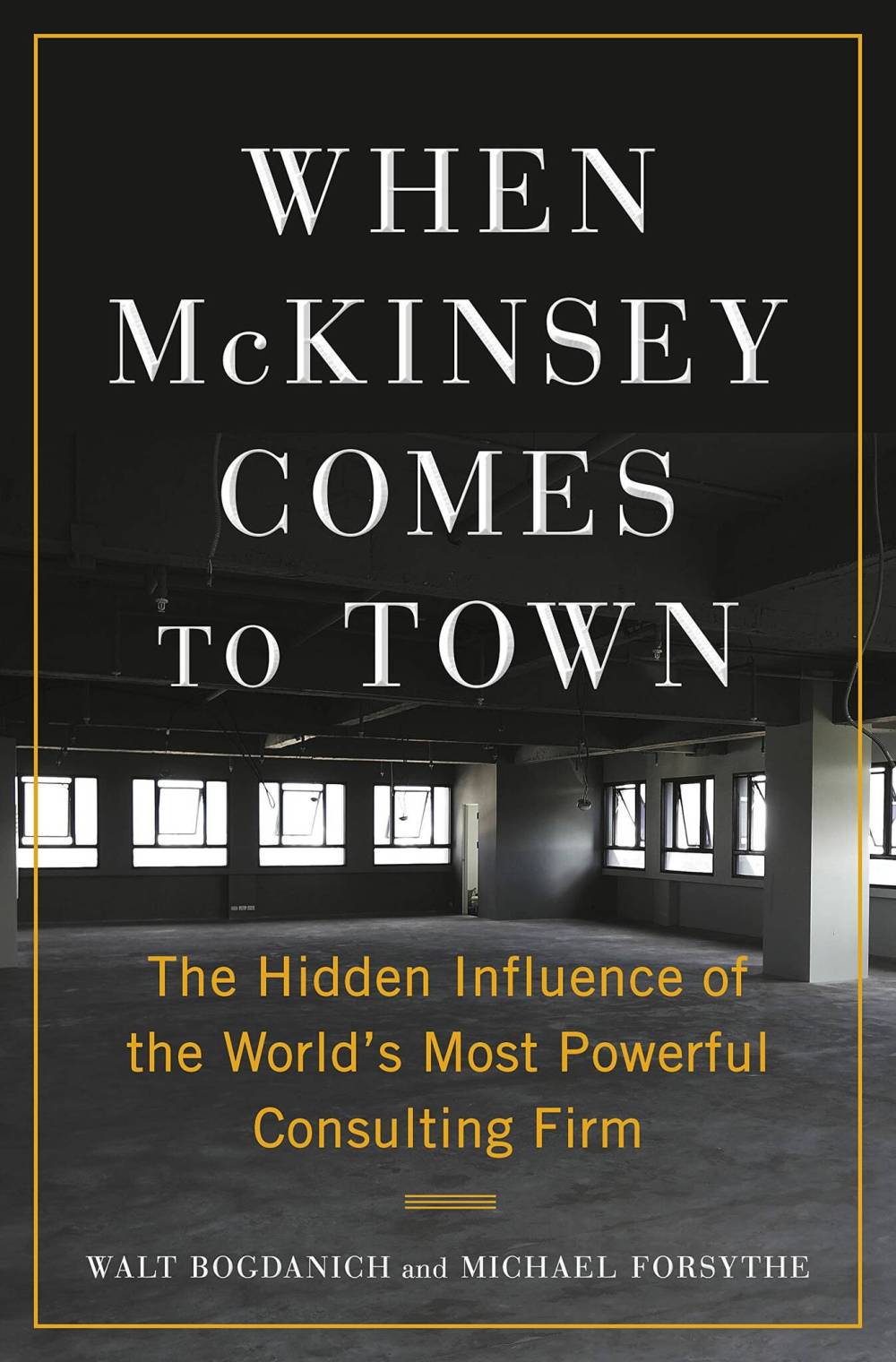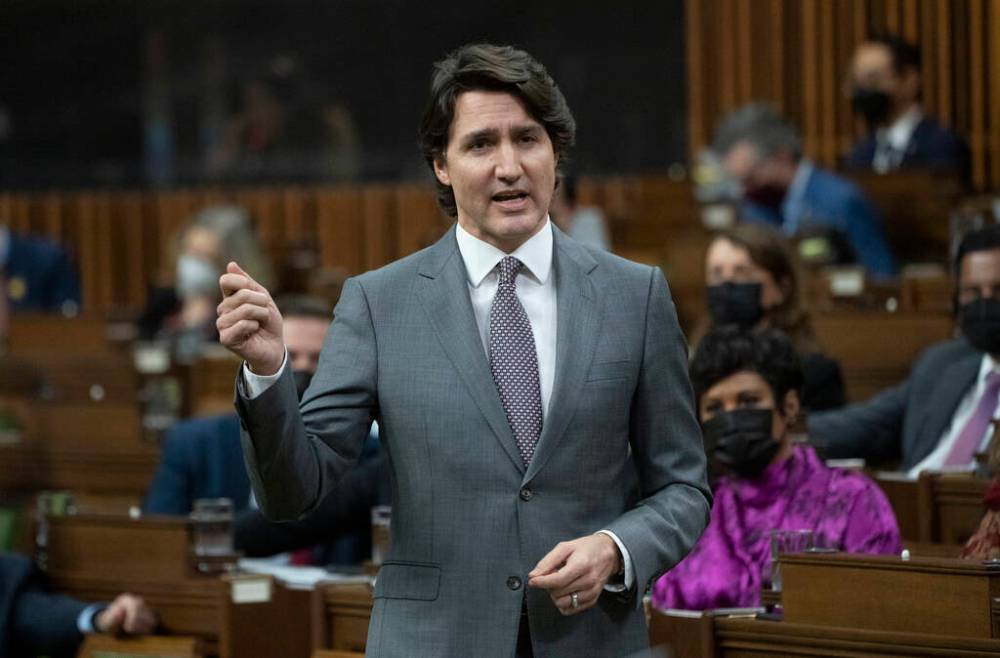Politics and power
Role of influential consulting firm goes under the microscope in chilling, well-researched account
Advertisement
Read this article for free:
or
Already have an account? Log in here »
To continue reading, please subscribe:
Monthly Digital Subscription
$0 for the first 4 weeks*
- Enjoy unlimited reading on winnipegfreepress.com
- Read the E-Edition, our digital replica newspaper
- Access News Break, our award-winning app
- Play interactive puzzles
*No charge for 4 weeks then price increases to the regular rate of $19.00 plus GST every four weeks. Offer available to new and qualified returning subscribers only. Cancel any time.
Monthly Digital Subscription
$4.75/week*
- Enjoy unlimited reading on winnipegfreepress.com
- Read the E-Edition, our digital replica newspaper
- Access News Break, our award-winning app
- Play interactive puzzles
*Billed as $19 plus GST every four weeks. Cancel any time.
To continue reading, please subscribe:
Add Free Press access to your Brandon Sun subscription for only an additional
$1 for the first 4 weeks*
*Your next subscription payment will increase by $1.00 and you will be charged $16.99 plus GST for four weeks. After four weeks, your payment will increase to $23.99 plus GST every four weeks.
Read unlimited articles for free today:
or
Already have an account? Log in here »
Hey there, time traveller!
This article was published 04/03/2023 (972 days ago), so information in it may no longer be current.
Nowadays, when governments want to do unpopular things like privatize public services, they give themselves cover by hiring management consultants to conveniently produce studies proving that privatization solves all problems.
Perhaps the most important management consultancy in the world is McKinsey & Company. New York Times investigative reporters Walt Bogdanich and Michael Forsythe tell a chilling and well-researched story of a secretive company that maintains a presence inside the world’s most consequential industries and governments.
Because the firm’s policy is not to identify clients or disclose the advice it gives, most people are unaware of the profound influence it exerts over their lives. In 65 countries, McKinsey has advised health care providers, pharmaceutical companies, the tobacco industry, the fossil fuel industry, weapons makers, airlines, casinos, sports teams and, in an apparent conflict of interest, their government regulators.
Justin Tang / The Canadian Press files
Dominic Barton became managing director of McKinsey in 2015 until leaving to take the role of chairman at Teck Resources in 2018.
A common thread running through McKinsey’s advice is that, as the major responsibility of companies is to maximize profits, the surest way to do so is to lay off workers, contract out and offshore jobs and reduce customer value. And, oh yes, increase executive compensation.
As far as governments are concerned, McKinsey usually recommends reducing taxes and public-private partnerships, or outright privatization.
While this book does not deal with the current House of Commons committee inquiry into the more than $100 million in fees paid to McKinsey by the Canadian government since 2015, Canadian Dominic Barton plays a prominent role. In 2015, Barton became managing director of McKinsey.
During his term of office, McKinsey advised American pharmaceutical companies on marketing, from an Alzheimer’s drug of doubtful efficacy to “turbocharging” Purdue Pharmacy’s hyper-addictive opioid sales (Barton says he was not aware of this), was implicated in a major South African corruption scandal, targeted critics of the Saudi Arabian government and helped facilitate China’s Belt and Road strategy.
In 2018, Barton resigned from McKinsey to become chairman of Teck Resources, the biggest producer of coal for steelmaking, much of which is exported to Asia, including China. Teck operates the Greenhills Mine on the British Columbia-Alberta border. Runoff from the open-pit mine is said to be contaminating drinking water and killing fish in the Elk River.
A year later, Barton became Canada’s ambassador to China. At about the same time, Teck became one of McKinsey’s biggest clients.

When McKinsey Comes to Town
In Britain in the 1980s, neoliberal Margaret Thatcher set out to free the capitalist market from government regulation. The institution most resistant to privatization was the popular National Health Service (NHS). The opportunity came with the 2008 financial crisis. Faced with a huge budget shortfall, the government employed McKinsey to trim NHS costs.
McKinsey advised laying off about 10 per cent of the workforce, cutting back on “unnecessary” medical procedures and contracting out important NHS assets and services to companies in the private sector. While service remains free at the point of use, public money is transferred to private companies, many of whom are also McKinsey clients.
These reforms were touted as putting patients first and empowering them to take care of themselves in partnership with doctors by, for example, phone calls rather than personal visits.
Government reliance on consulting firms undermines democracy; these firms advance private interests over the common good, subordinate regulatory agencies to business interests and allow governments to pretend secrecy is necessary to protect consultants’ proprietary information. Yet, if democracy is to succeed, the public’s right to know how and why government spends its money is vital.
McKinsey issued a response to this book. They said it fundamentally misrepresents the work of the firm. “Business, when managed well and responsibly, is a force for good,” they wrote.

The Canadian Press files
A House of Commons committee inquiry is currently being held to look into the more than $100 million in fees paid to McKinsey & Company by the Canadian government since 2015.
Bogdanich and Forsythe appear to think that, in a perfect world, McKinsey would prefer social justice over social corruption. However, their own research reveals the firm’s big paydays come from doing what its major clients want: promoting addictive products, supporting major polluters, working with authoritarian governments and developing policies that expand income inequality.
Winnipegger John K. Collins used to think Leonard Cohen exaggerated when he sang: “The fight is fixed: the poor stay poor, the rich get rich.” Now he’s not so sure.


